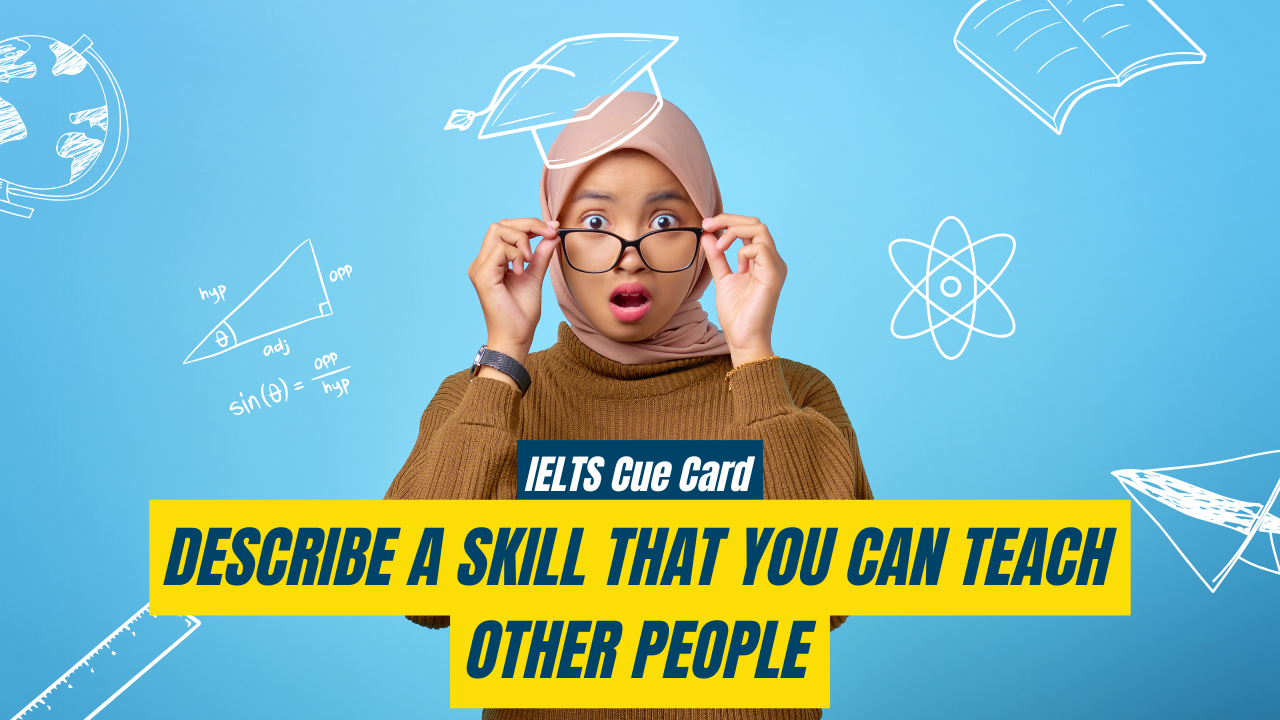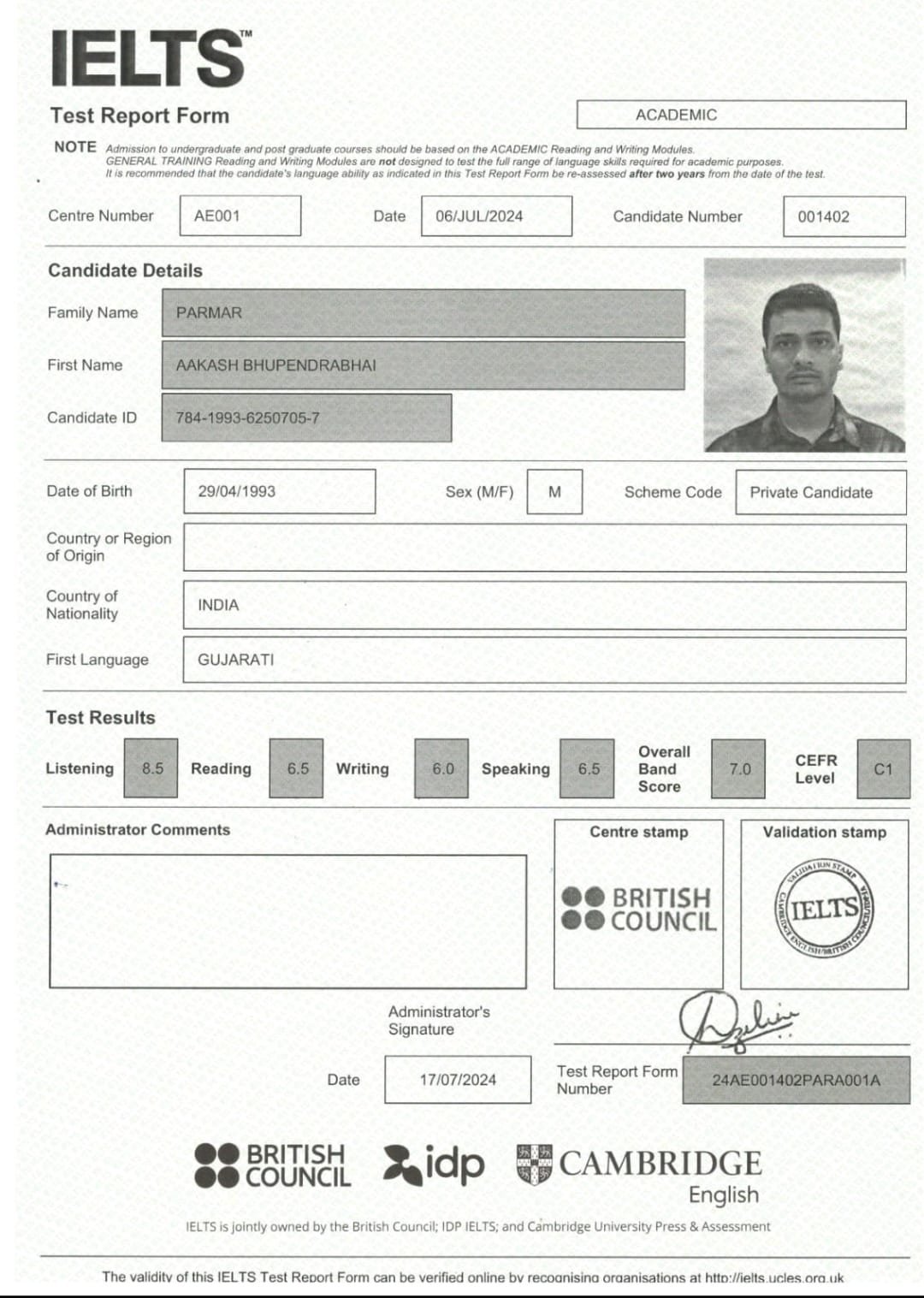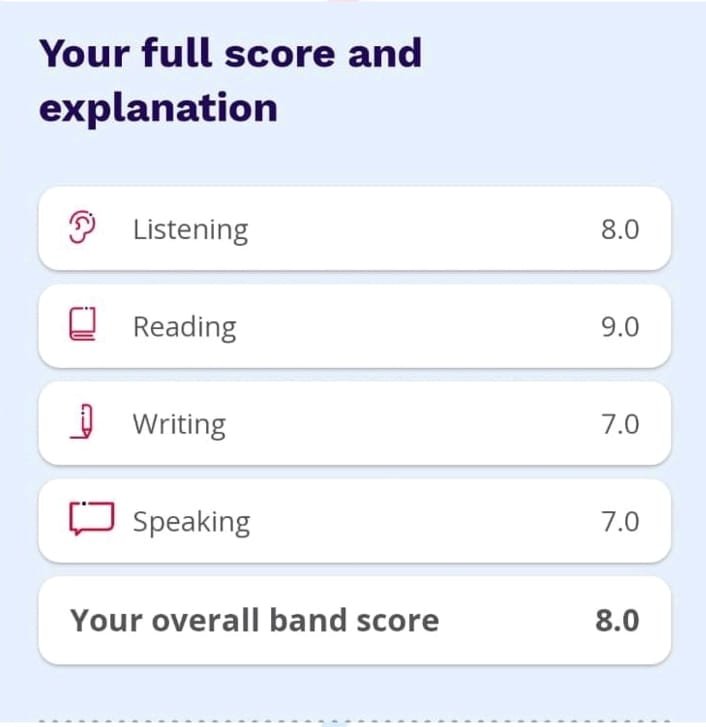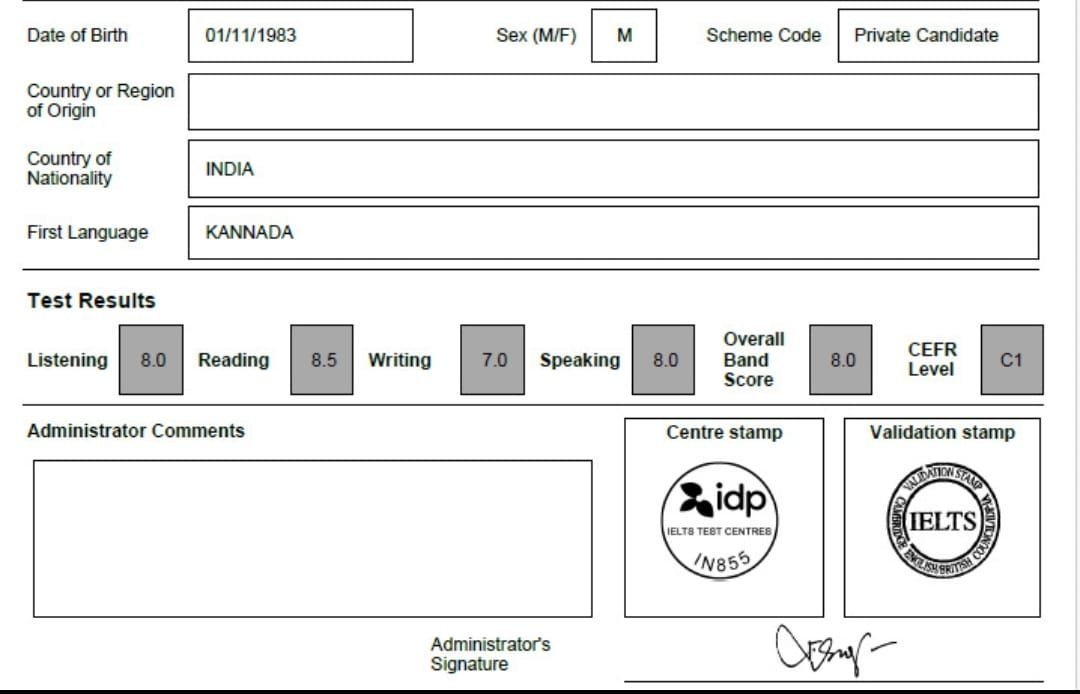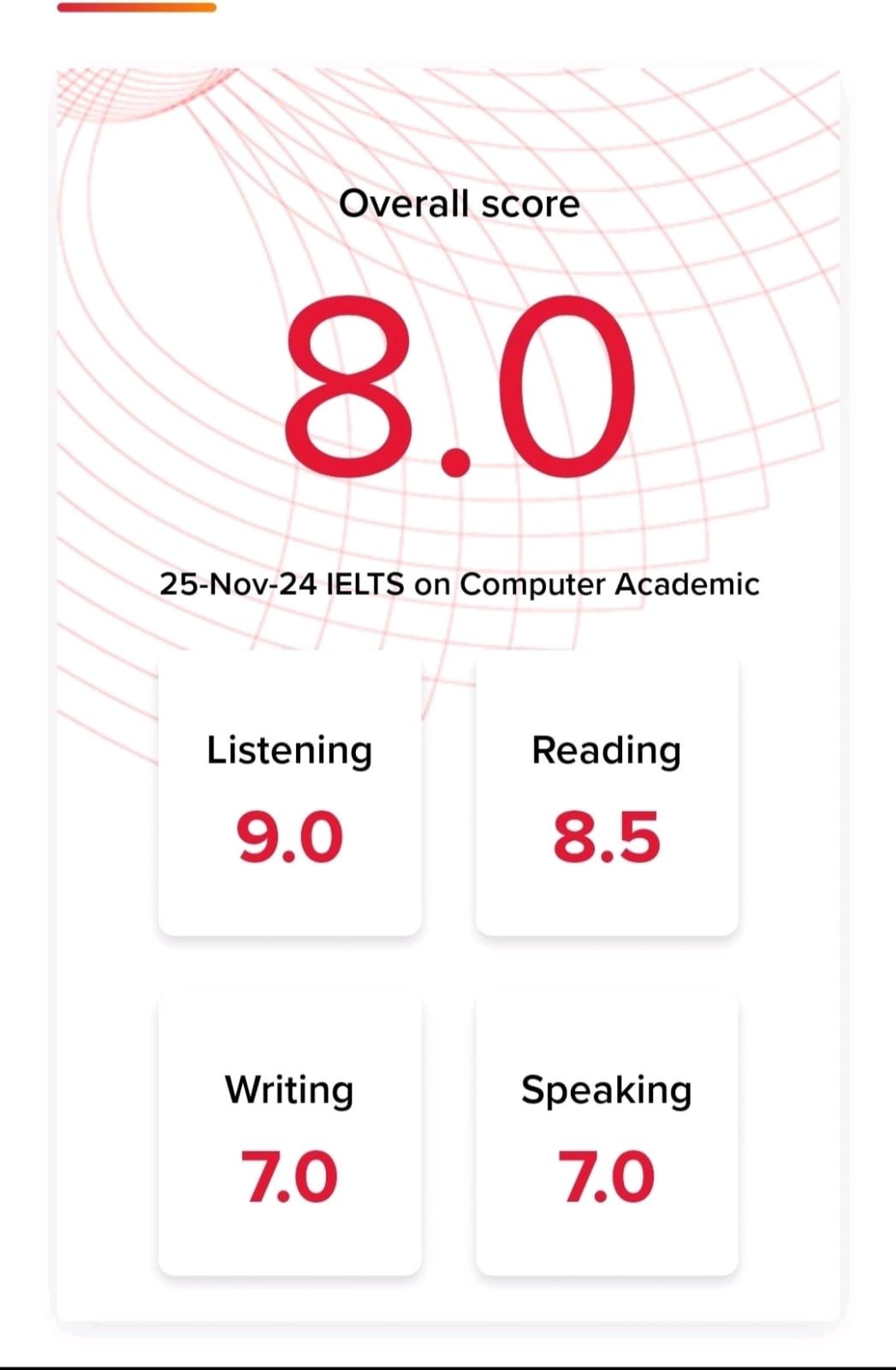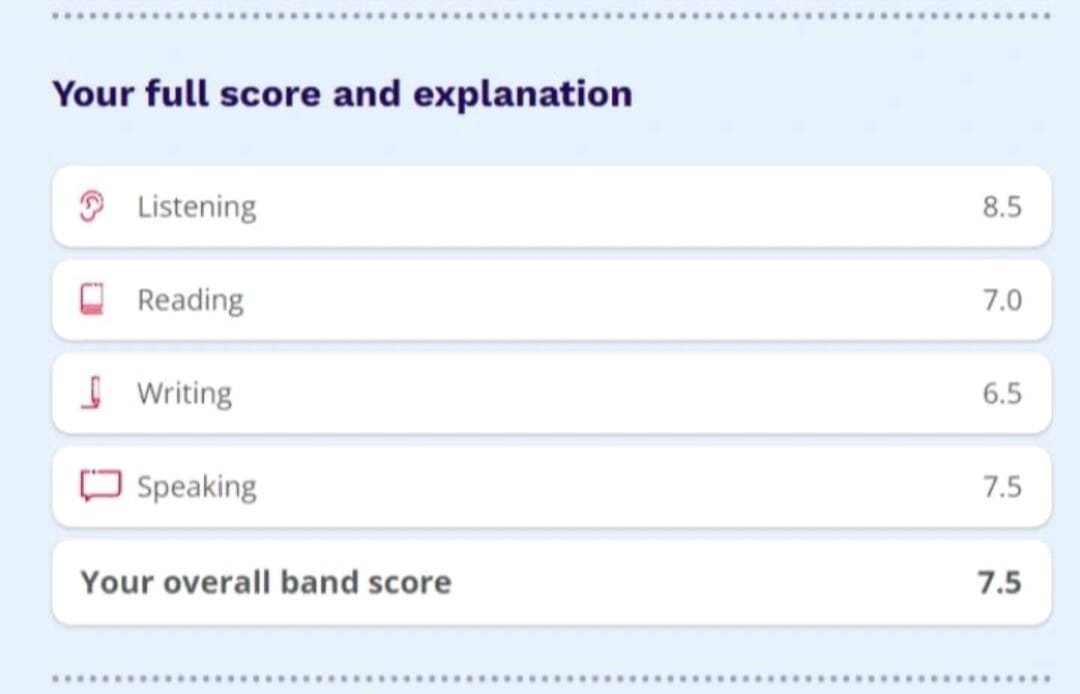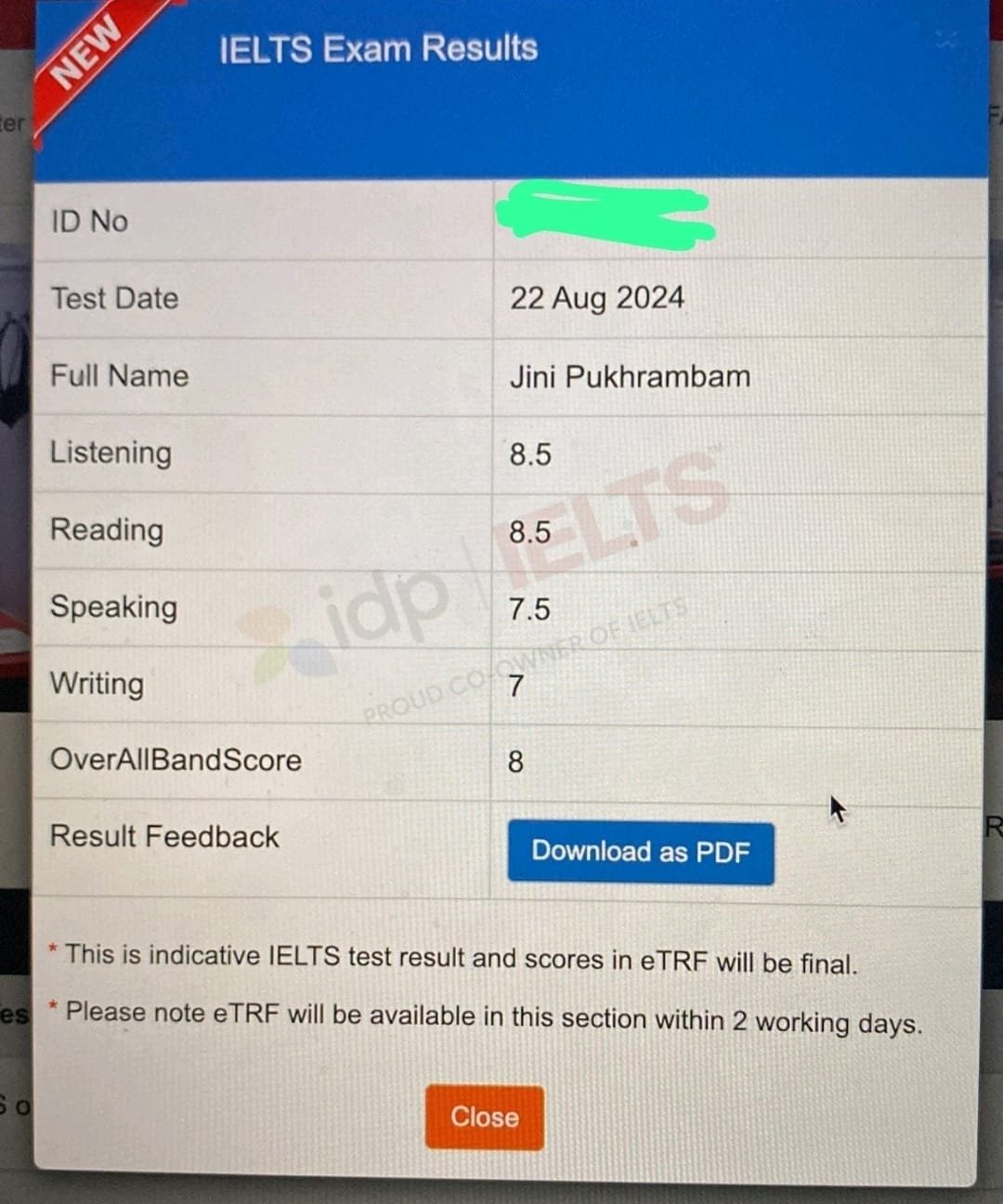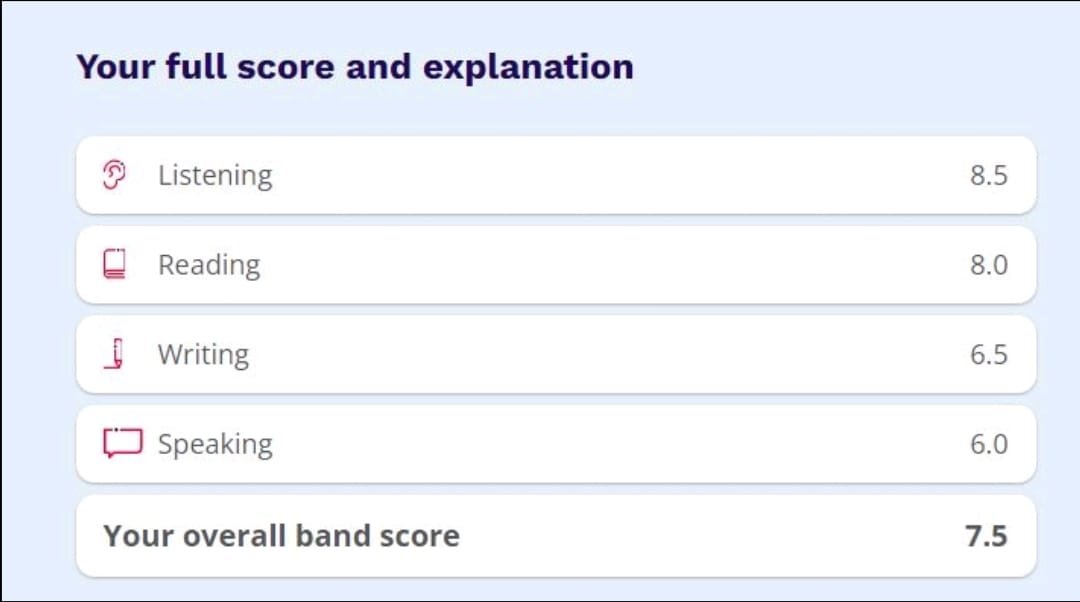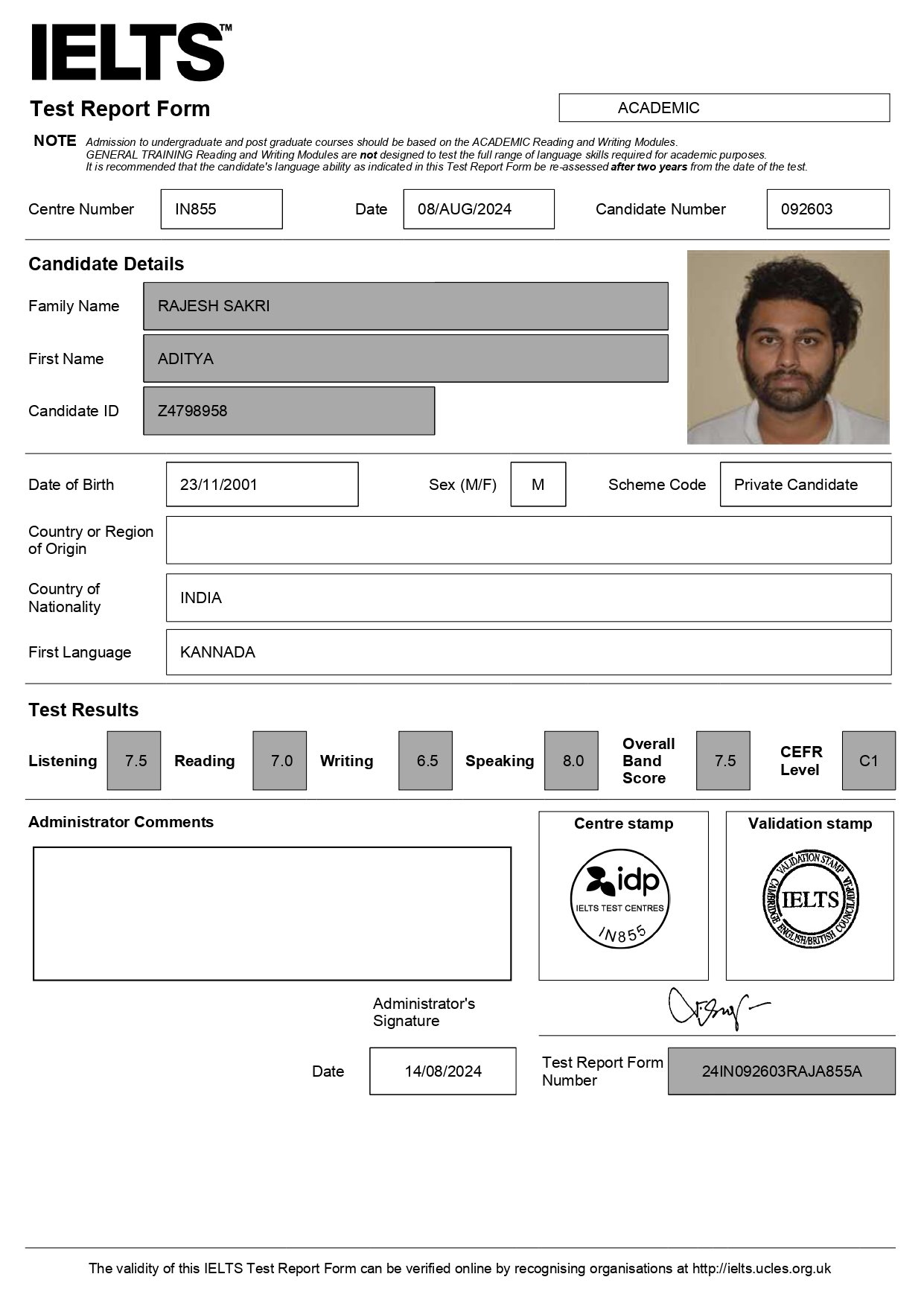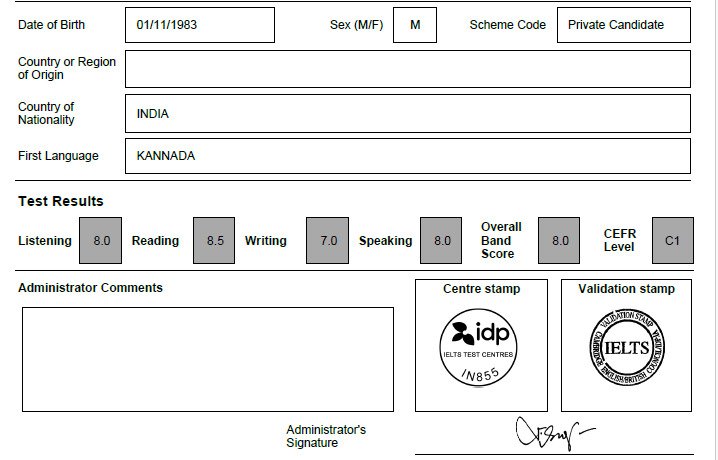
What is the IELTS Speaking Test? Please understand this IELTS speaking part needs to be an interactive dialogue between the candidate and an IELTS examiner who is qualified This assesses how well your test taker can comprehend English, as matters here change from general to specialized/software. Atomic scheduling is restricted by assignments.
In this blog, we will help you with one of the common IELTS Speaking cue card that is Describe a Skill That You Can Teach Other People by sharing sample answer and techniques to give an organized response. And on top of that, It gives a breakdown of each parts in the IELTS Speaking test so you got nothing to worry about when it starts with your turn.
IELTS Speaking- Cue Card
You will receive the topic of a cue card and some questions that you may ask in your preparation. This is the one-minute preparation exercise: Describe a skill that you can teach other people, and here, speak for around 2 minutes. Topic-Wise: In the IELTS speaking section 3, you have a discussion round that asks some questions topic-wise which You will answer in four to five lines.
Describe a Skill That You Can Teach Other People
You should say
What is it?
How did you learn it?
How can you teach others this skill?
How do you feel about this skill?
Model Answer #1 : Describe A Skill That You Can Teach Other People
Introduction
These skills have been developed over time throughout my life, and I have learned public speaking, creative writing, and time management. In this fast-paced world, the art of public speaking is very important for people to distinguish themselves in their work, studies, or social circles. It increases one’s confidence and helps one become a better communicator and persuader, which are requirements for most jobs..
What is it?
One skill that I am absolutely sure of and can easily teach is public speaking. I believe that, given a little bit of direction and practice, anybody can become a great speaker.
How did you learn it?
I first started speaking in public during my high school days. Participating in debate clubs and other public speaking workshops really sharpened my talent in that area. It was during university, while participating in a group dedicated to practicing public speeches, that the important concepts, such as putting together a talk, using body language properly, and involving the listeners, all gradually unfolded themselves.
How can you teach others this skill?
I have taught public speaking to younger students through workshops and training sessions. It usually starts with exercises meant to build confidence, and from there, I would give them a series of techniques such as voice modulation, eye contact, and pacing. I also include practice sessions where they receive feedback for improvements progressively.
How do you feel about this skill?
I am very proud of my public speaking skills as they have opened many doors for me professionally and socially. I think it’s a skill everyone should have because it builds self-assurance and helps people speak effectively. Teaching public speaking to others feels fulfilling because I get to see how it changes or transforms people, making them more self-assured and expressive.
Tip: Use fewer filler words such as “um”, “uh”, or “you know”. Filler words can disrupt the fluency of speech.
Vocabulary: Word of the Moment
- Refined – developed or improved over time
- Distinguish – to set apart or make noticeable
- Persuader – someone who can influence or convince others
- Competent – skilled and capable in a particular area
- Engagement – involving others actively
- Articulation – the clarity and expressiveness in speaking
- Self-assured – one confident on own abilities
- Transformative – causing a marked change in someone
- Progressive – gradually advancing or improving
Model Answer # 2: Describe A Skill That You Can Teach Other People
Introduction
Photography has become my passion, and I would love to share this gift with others: its mastery being one of the creative and professional opportunities available in today’s visually driven world.
What is it?
The skill I would love to teach others is photography. Photography has been my passion since childhood. I used to capture memorable moments, and with time, it became a passion for me. Now my family and friends know me as “the photographer of the group,” as I always clicked pictures of our gatherings and trips.
How did you learn it?
I learned photography through self-study and practice. I started with online tutorials and photography blogs, learning the basics of composition, lighting, and camera settings. Later, I attended some professional courses to enhance my skills. Much practice at different locations like urban, nature, and indoor setups also helped me learn much.
How can you teach others this skill?
I am quite confident that with the kind of hands-on experience I have had, using all sorts of cameras and techniques, I am going to be a very good photography teacher. And so, I will begin with the basics- handling the camera, framing, and lighting techniques and slowly go on to the advanced from there. I have done it for some friends earlier, teaching them the photography basics, and they thanked me for my tips and comments on their work.
How do you feel about this skill?
I believe photography is an art that is very rewarding to learn; it helps people capture a moment in life and be able to preserve it in memory. It is this form of expression that can only be deeply personal. That’s why teaching photography will be fulfilling for teaching others to see life from a different angle creates lifelong memories.
Conclusion
With the knowledge I have gained in photography, I would be excited to help others discover this skill. It’s a talent that not only enhances creativity but also adds value to personal and professional life, allowing one to share unique perspectives with the world.
Tip: You should not make general statements in your answer. You should be specific and provide examples to support your answer.
Vocabulary: Word of the Moment
Mastery- Complete control or expertise in a particular skill.
Visually Driven- Focused on or influenced by visual elements or imagery.
Framing- The technique of positioning elements within a photo to enhance focus.
Hands-on Experience- Practical, direct involvement in doing a task.
Expression- The process of making one’s thoughts or feelings known.
Perspective- A particular way of viewing things or considering them.
Preserve- To keep something in its original state or maintain it.
Describe A Skill That You Can Teach Other People - Follow-up Questions
Question: Should teachers be funny when they teach?
Answer: Yes, I believe humor is something beneficial for the teacher to inject into her teaching. The classroom will be made interesting, and a more close relationship develops between teachers and students. Humor is what lets students feel easy and make them feel at ease and comfortable in asking their questions and sharing their concerns with the teacher. However, teachers have to balance these things since sometimes they also have to be serious when classroom discipline calls for that.
Question: What qualities should teachers have?
Answer: In my view, a good communication skill is a prerequisite for a teacher. A teacher should be able to describe things clearly and simply to the students. Observing skills should also be possessed by a teacher, for that would let him or her know when the student feels puzzled or uncertain about any aspect. Understanding and patience must be the tools used while building confidence and trust among students because a teacher would have to explain something several times to his students before they understand what the teacher is trying to make them understand.
Question: Which do you believe is more significant, academic or practical skills?
Answer: Academic backgrounds would be important for career teachers, lawyers, or researchers. However, academic bases may not be the same as the requirements of someone who wishes to pursue a business or communications career needs vary between professionals.
Question: Which age group is optimal for learning?
Answer: I personally believe that there is no age barrier to learning. One can learn anything anywhere at any stage of his life, and continued learning keeps the mind active and sharp. Therefore, instead of concentrating on a particular age, I feel we should strive to learn all our lives.
Question: What abilities may a child acquire from his or her teachers and parents?
Answer: Such qualities like honesty, respect for others, and punctuality that children learn from are basically channeled through teachers and parents. Teachers and parents play the most important role in these qualities since they are the biggest influence in the life of a child.
Related IELTS Cue Card Topics
Check out our other IELTS cue card topics to practice:
Describe a Volunteering Experience You Have Had
Describe a Bag You Want to Own
Final Words
In essence, this guide leads you to success in responding to the IELTS cue card topic “Describe a Skill That You Can Teach Other People.” This provides model answers for you on vocabulary and betterment in organizing your answer. Going through this cue card will enable you to give an impression of clarity as well as confidence when expressing yourself in the English language. Remember, you are showing that you can think in your language and present your ideas clearly relevant to the question.
These cue cards and preparation for follow-up questions will really give you confidence when you take your IELTS Speaking test to speak about all these kinds of topics. Good luck, and try to relax and speak as naturally as possible!

